Airports are critical hubs in the global transportation network, facilitating the movement of millions of passengers each year. The busiest ones in the world are not only characterized by their passenger traffic but also by their immense size, cutting-edge facilities, and strategic locations. They serve as major hubs for international and domestic flights, connecting travelers to all corners of the globe. In this article, we’ll explore the largest airports based on passenger volume, offering insights into their operations, key features, and role in the global aviation industry.
Charles de Gaulle Airport (CDG)
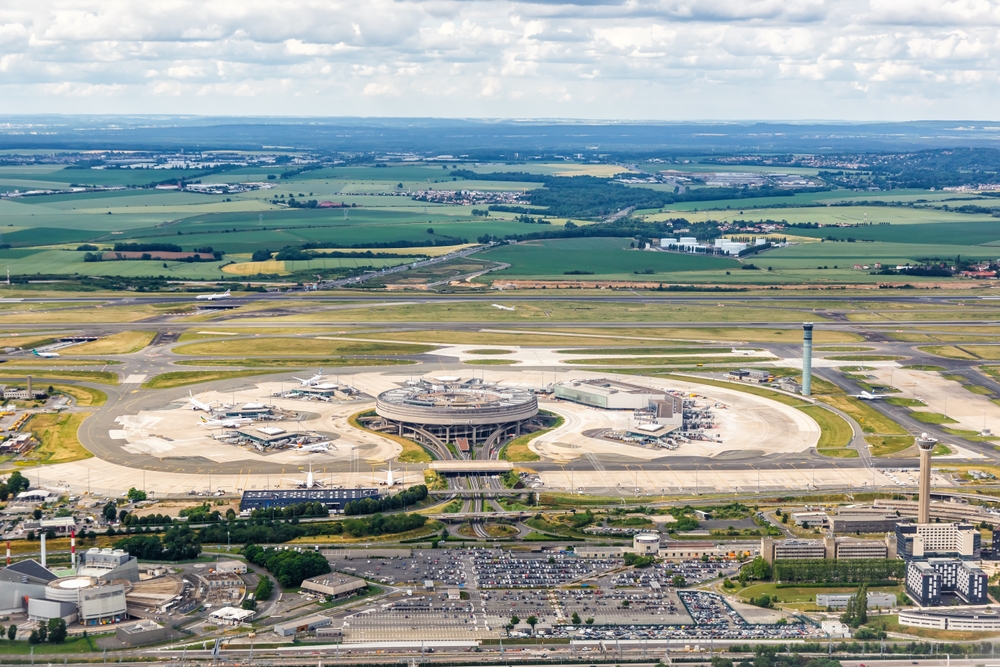
Charles de Gaulle Airport, also known as Roissy Airport, is France’s largest and busiest airport, handling over 67 million passengers annually. Located near Paris, CDG covers 12.5 square miles and opened in 1974. It serves as a major hub for Air France and several other international airlines, connecting travelers to destinations across the globe. It has three main terminals, with Terminal 2 being the largest and handling most of the international traffic. It is known for its extensive range of luxury shops, restaurants, and cultural exhibits, giving travelers a unique Parisian experience before they even leave the airport. It also plays a significant role in air cargo, ranking high among European airports for freight traffic.
Denver International Airport (DEN)
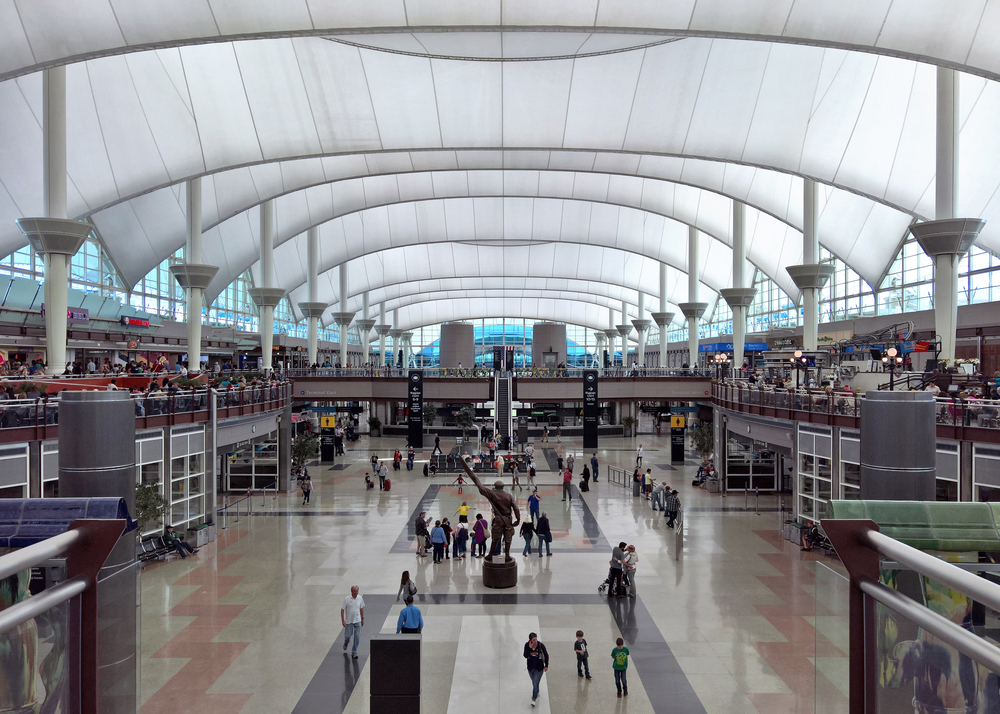
Denver International Airport is one of the largest by land area, covering 33,500 acres, and handled over 69 million passengers in 2023. Located in Denver, Colorado, it opened in 1995 and is known for its striking tent-like roof design and vast open spaces. It operates six runways and serves as a hub for United Airlines and Southwest Airlines. Its central location makes it a key domestic hub for connecting flights, especially across the U.S. to the Rocky Mountain region. In addition to its passenger services, it handles a significant amount of cargo, serving both domestic and international routes. With its extensive infrastructure, DEN is well-equipped to handle future growth and expansions. The airport has been recognized for its efforts in environmental sustainability, including the use of renewable energy and water conservation practices. It also offers extensive art displays throughout its terminals, creating a unique travel experience for passengers.
Indira Gandhi International Airport (DEL)
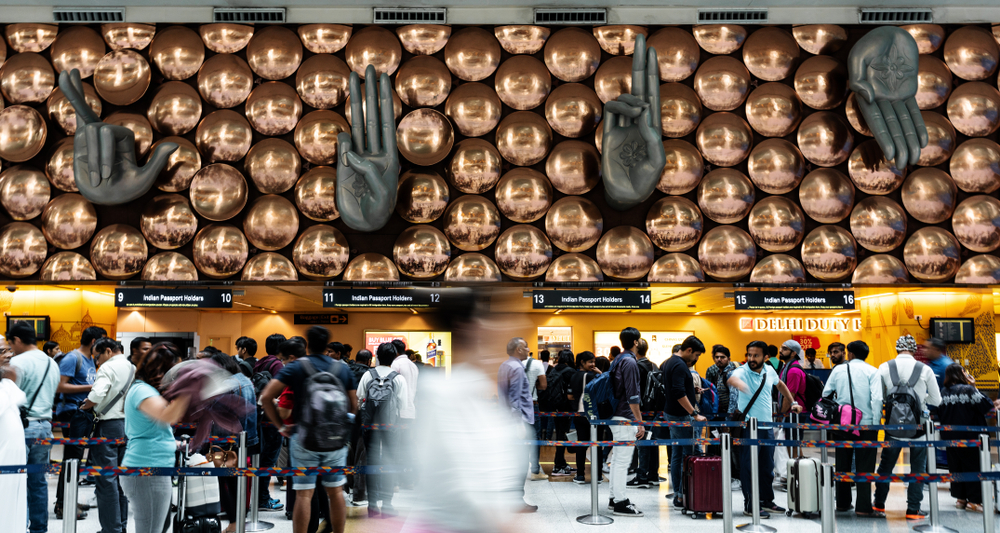
Indira Gandhi International Airport, located in Delhi, India, is one of the busiest airports in Asia, serving more than 72 million passengers annually. Spread over 5,100 acres, it is the largest airport in India by passenger volume and opened its doors in 1986. DEL has three runways and three terminals, with the newest, Terminal 3, serving as the primary hub for international flights. It is a significant base for Indian carriers, including Air India and Vistara. It features a wide array of shopping, dining, and relaxation options, making it a comfortable stopover for international travelers. It plays a crucial role in connecting India to the rest of the world, with flights to major cities across Europe, Asia, and North America. It is currently undergoing further expansions, aiming to increase its capacity to handle over 100 million passengers annually by 2030. It has also received multiple awards for being one of the best airports in Asia based on customer satisfaction.
O’Hare International Airport (ORD)
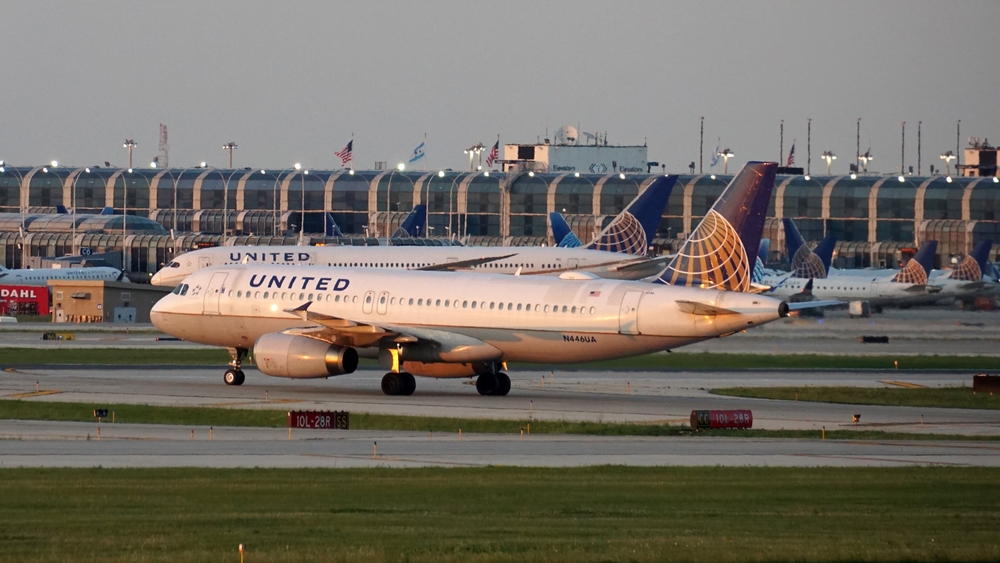
Chicago O’Hare International Airport, located in Illinois, handles over 73 million passengers annually, making it one of the busiest in North America. Opened in 1955, it covers more than 7,200 acres and features four terminals. As a major hub for both American Airlines and United Airlines, it serves as a critical connecting point for domestic and international flights. It is currently undergoing a major expansion project known as “O’Hare 21,” which aims to modernize the airport and add a new global terminal by 2028. It also offers extensive amenities, from high-end dining to luxury shopping, making it a well-rounded travel experience. It has long been a key player in both passenger traffic and cargo, ensuring Chicago’s status as a major global transportation hub. It ranks among the top five for longest security wait times, so services like TSA PreCheck or Clear are recommended for frequent travelers.
Istanbul Airport (IST)
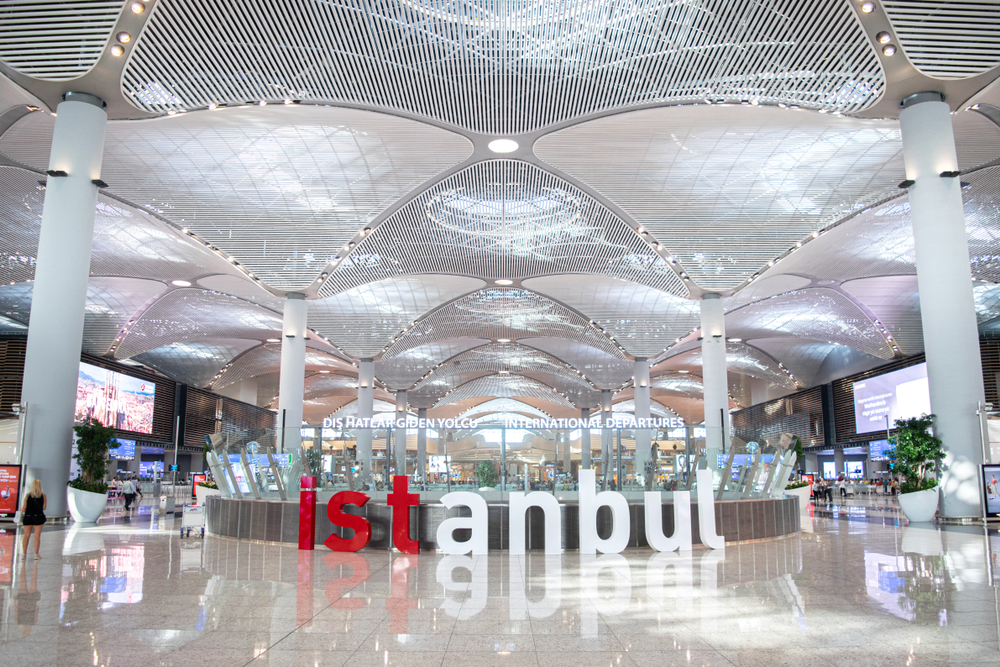
Istanbul Airport is one of the most important aviation hubs in Europe, serving over 76 million passengers annually. Located in the Arnavutköy district of Istanbul, Turkey, it covers an area of 76.5 million square feet and began operations in 2018. It has quickly risen in global rankings due to its strategic position, serving as a bridge between Europe, Asia, and Africa. IST has four runways, with additional infrastructure in place to handle future expansion, and is the hub for Turkish Airlines. It features luxurious lounges, retail spaces, and fine dining options catering to international travelers. Its advanced technology and eco-friendly design aim to set new standards in passenger comfort and sustainability. With plans for further expansion, it is set to become one of the largest airports globally by capacity. It also has plans to eventually handle 200 million passengers annually, making it one of the most ambitious airport projects in the world. It even supports extensive cargo operations, significantly boosting Turkey’s position as a trade hub.
Los Angeles International Airport (LAX)
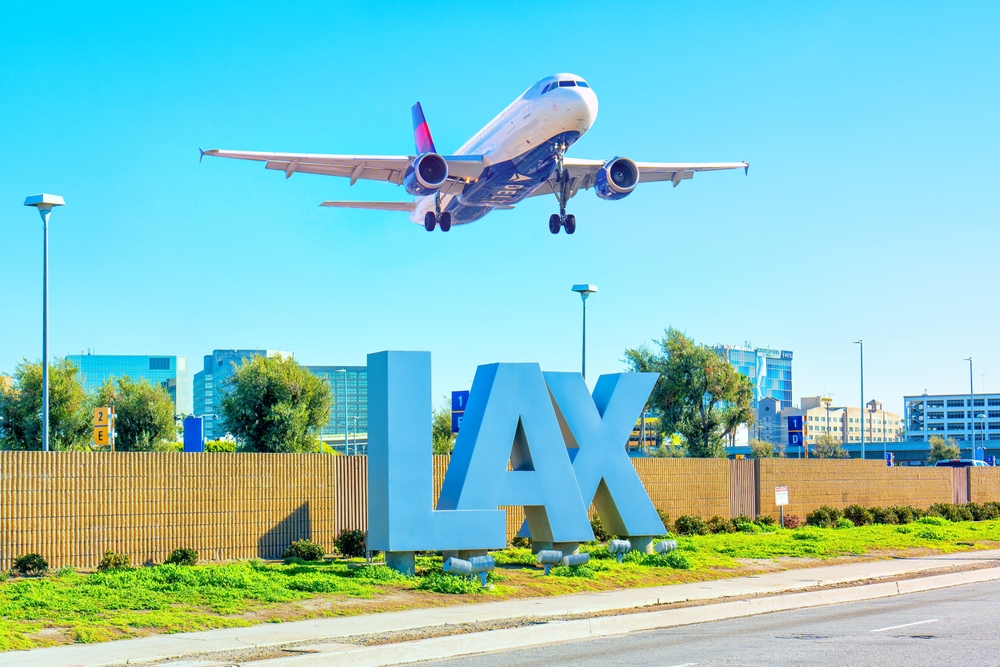
Los Angeles International Airport, commonly known as LAX, serves over 78 million passengers annually. Located on 3,500 acres near the Pacific Ocean, LAX opened in 1928 and has grown into a major international hub, particularly for flights connecting the U.S. to Asia, Latin America, and Europe. It has nine passenger terminals, with several undergoing renovations to modernize and enhance the traveler experience. It serves as a key hub for airlines such as American, Delta, and United Airlines, as well as numerous international carriers. It also handles a large volume of cargo, particularly for Pacific routes, making it an essential gateway for global trade. It offers a wide range of services, including dining, shopping, and premium lounges for travelers. It is currently undergoing a multi-billion-dollar renovation project aimed at improving its infrastructure and capacity. Its location near Hollywood and Silicon Beach also makes it a preferred choice for business travelers in the entertainment and tech industries.
Tokyo Haneda Airport (HND)
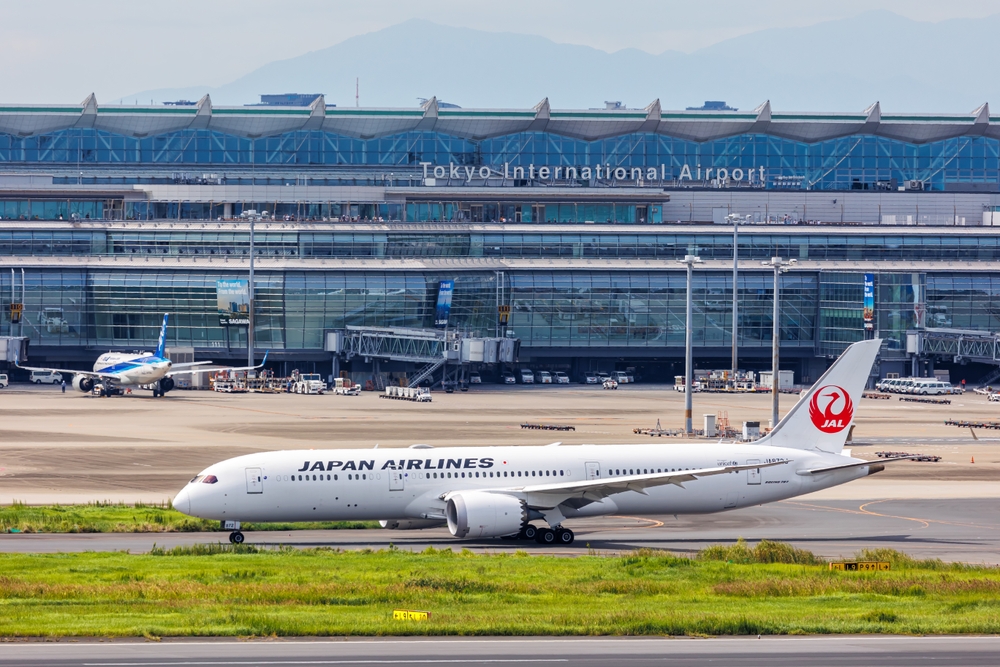
Tokyo Haneda Airport, located just 10 miles from downtown Tokyo, handled over 78 million passengers in 2023. It covers 1,500 acres and serves as one of Japan’s primary international and domestic gateways. It operates three terminals, with Terminal 3 dedicated to international flights. It is a hub for Japan Airlines and All Nippon Airways (ANA), Japan’s largest carriers. Known for its efficiency, it offers quick transit times and has gained a reputation for excellent customer service. Its close proximity to Tokyo makes it a favorite among travelers looking for convenient access to the city. In recent years, it has expanded its international routes, solidifying its role as a major global hub. It has received numerous awards for cleanliness and punctuality, making it a top choice for frequent flyers. It also features traditional Japanese architecture and cultural experiences within its terminals.
Dallas/Fort Worth International Airport (DFW)
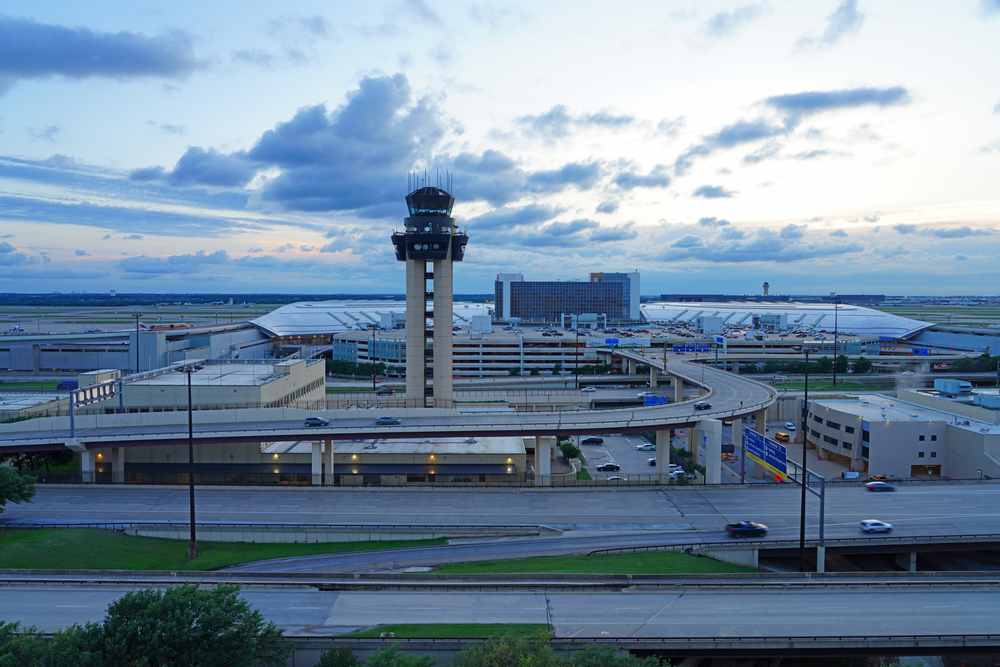
Dallas/Fort Worth International Airport is the third-busiest airport in the world, handling over 81 million passengers annually as of 2023. Located between Dallas and Fort Worth in Texas, it covers more than 27 square miles. Opened in 1974, DFW has five terminals and 168 gates, making it one of the largest airports in the world by size. It serves as the primary hub for American Airlines, which contributes significantly to its passenger numbers. It offers a wide array of dining, shopping, and services for travelers. It is also known for its commitment to sustainability, with a plan to achieve net-zero carbon emissions by 2030. Its strategic location in Texas makes it a key hub for both domestic and international flights. In addition to its passenger services, it handles substantial cargo, ranking among the top U.S. airports for freight movement.
Dubai International Airport (DXB)

Dubai International Airport handled more than 83 million passengers in 2023, solidifying its place as one of the busiest airports in the world. Covering over 7,200 acres, the airport opened in 1960 and now has three terminals, including the massive Terminal 3, which is dedicated primarily to Emirates Airlines. As a major connection point between Europe, Asia, and Africa, DXB is a critical hub for long-haul international flights. In addition to its extensive passenger services, it is one of the world’s busiest cargo airports, handling millions of tons of goods annually. It offers luxurious amenities, including high-end shopping, fine dining, and exclusive lounges, making it a favorite for premium travelers. Its strategic location and world-class facilities make DXB a key player in global aviation. It is known for its Dubai Duty Free, one of the largest in the world, which generates substantial revenue through luxury retail. It is also expanding its terminals to accommodate more passengers in the future.
Hartsfield-Jackson Atlanta International Airport (ATL)
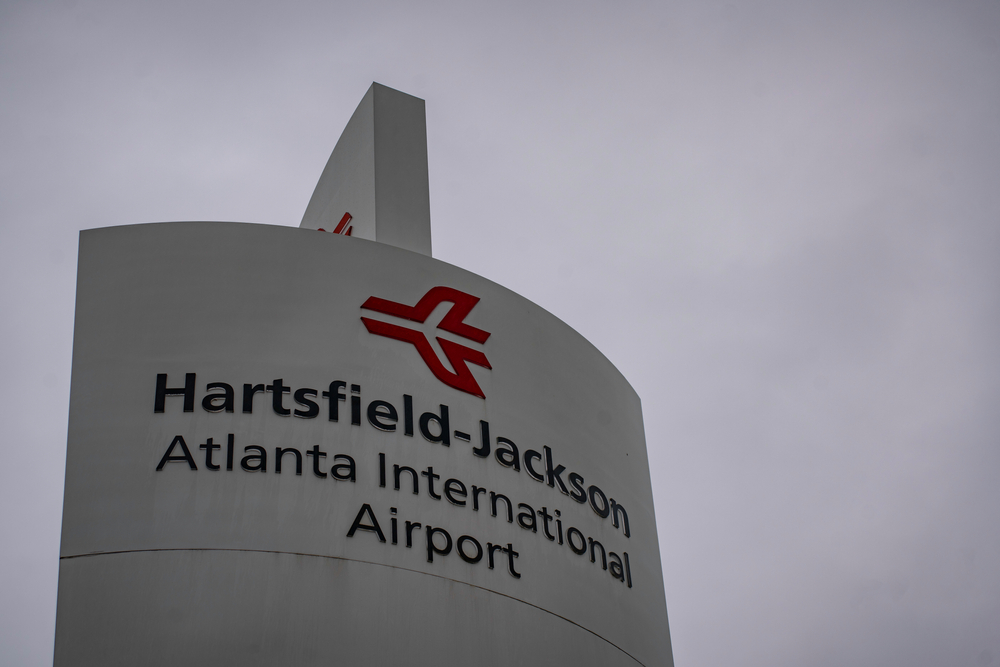
As the world’s busiest airport, Hartsfield-Jackson Atlanta International Airport handled over 93 million passengers in 2023. Located in Atlanta, Georgia, the airport covers 4,700 acres and serves as the primary hub for Delta Air Lines. Opened in 1925, ATL has two main terminals and five parallel runways, making it one of the most efficient airports in the world. Its location in the southeastern U.S. makes it a vital hub for domestic flights, connecting travelers to destinations across the country and internationally. It offers a wide variety of services, including restaurants, shops, and lounges, to serve its massive passenger volume. In addition to passenger traffic, the airport also handles significant cargo, ranking among the top U.S. airports for freight. It has invested heavily in technology, including biometric screening and automation, to streamline the passenger experience. Its proximity to downtown Atlanta makes it a convenient choice for both business and leisure travelers.
This article originally appeared on Rarest.org.
More from Rarest.org
10 Oldest Castles in the World
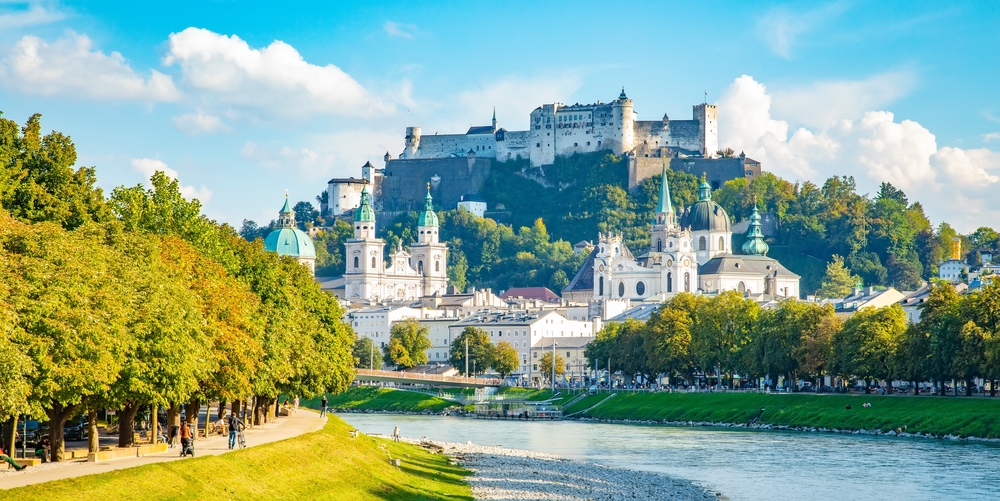
Castles are some of the most enduring symbols of history, offering a glimpse into the past through their architecture and stories. These ancient fortresses have witnessed the rise and fall of empires, serving as both military strongholds and royal residences. Read More.
11 Mysterious Cave-Dwelling Creatures You Never Knew Existed

Beneath the earth’s surface lies a hidden world of caves, home to creatures that have evolved in complete darkness. These mysterious animals have adapted in remarkable ways, losing their vision, developing heightened senses, and finding ingenious methods to survive in harsh, nutrient-poor environments. Read More.
15 Most Notable Scientific Discoveries in History

Throughout history, countless scientific discoveries have transformed the way we understand the world and shaped the course of human progress. From breakthroughs in medicine to revolutionary theories in physics, these discoveries have not only solved complex mysteries but also laid the groundwork for future innovations. Read More.
